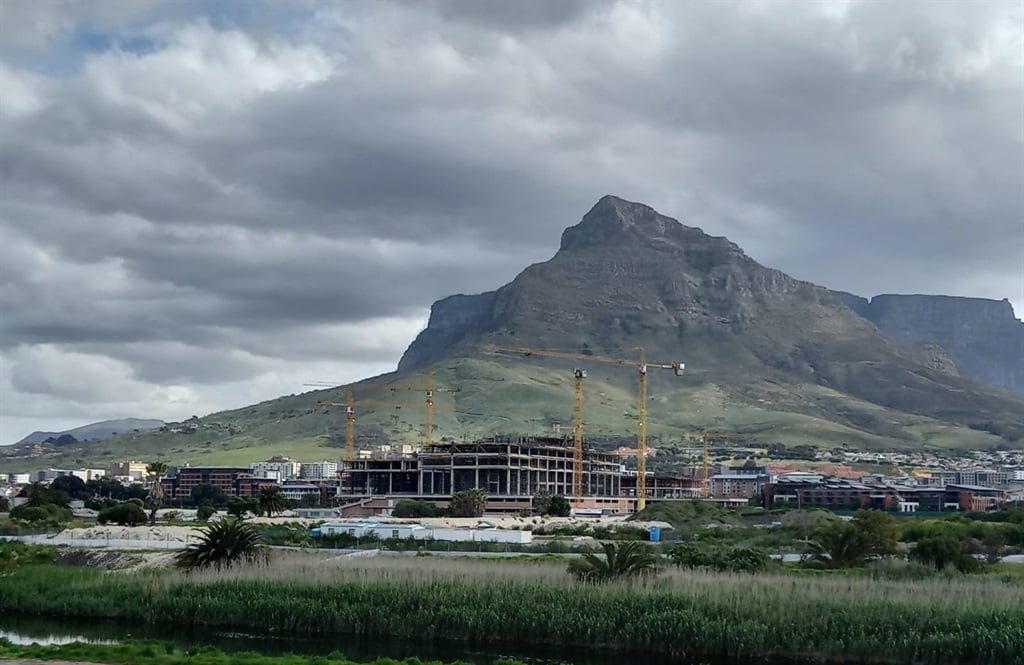
- An appeal to overturn an interdict against development at the River Club site in Cape Town continues in the Western Cape High Court.
- It involves an attempt to challenge the traditional leadership standing of the man who obtained the interdict on behalf of a traditional council.
- Three judges are hearing the complex matter.
The enormous challenge to an interdict against the development of Cape Town's River Club, until an issue over consultations with First Nations indigenous people is resolved, continues before a full Western Cape High Court bench on Wednesday.
The property is set to house Amazon's South African head office, including a call centre.
The case involves a pincer movement against an order Deputy Judge President Patricia Goliath gave in March, and the standing of one of the parties challenging the consultation process.
After a chaotic series of court applications against the developers, the challenge which started on Tuesday was an application by the developers and local authorities to rescind Goliath's interdict on the grounds that a representative misled the court about his mandate to represent the Goringhaicona.
That was followed by an appeal by the developer and local authorities to overturn the interdict on the basis that Goliath had got it wrong.
The Western Cape's director for environment and development planning, and the MEC, through their lawyer John Newdigate, SC, argued on Tuesday that the decision to give the go-ahead for the multibillion-rand development was not made lightly.
He said:
Newdigate said Tauriq Jenkins, in an application on behalf of the Goringhaicona Khoi Khoin Traditional Indigenous Council, said the First Nations people hadn't been adequately consulted. However, he provided no detail or background on who had not been consulted.
"There was meaningful public participation," Newdigate said.
At that point, two men stood up in the public gallery.
"Yes, we were not consulted," Gregg Fick said. He later told News24 he was associated with a group called the First Indigenous Nation of Southern Africa.
He said:
A representative of the Xam from the Northern Cape was next to him.
Judge Elizabeth Baartman asked them to sit down and to leave their details with the court so that the judgment could be sent to them.
The case has taken dramatic twists and turns. The developer, the Liesbeek Leisure Properties Trust, wanted leave to appeal Goliath's interdict, but she turned them down.
After a lull in construction, it started up again. The developer was taken to court for alleged contempt of court, but the matter was struck from the urgent roll.
Jenkins' standing was questioned when a lawyer for a grouping purporting to be the true representatives of the Goringhaicona alleged that he had been suspended by their council.
Jenkins disputed this strongly, saying that a document showing the supposed resolution was not the usual document format the council would use.
However, the developers' counsel, Sean Rosenberg, SC, said in court at the time that they had applied for leave to appeal at the Supreme Court of Appeal.
He said the developers could not afford any more delays because they were already losing millions.
However, the matter was returned to the Western Cape High Court for a full Bench hearing.
The site is situated near the Liesbeek and Black Rivers.
It is not disputed that it has heritage value for the Khoi and the San, who were dispossessed of the land, but there is a disagreement within groupings of the First Nations over whether there was proper consultation.
A grouping called the First Nations Collective supports the development fully because there will be jobs, and the designers included a cultural centre for them among its ways of honouring their heritage.
The developers argue that it will be the first time their heritage will be honoured and protected.
At least 600 new residences will also be built on the site.


